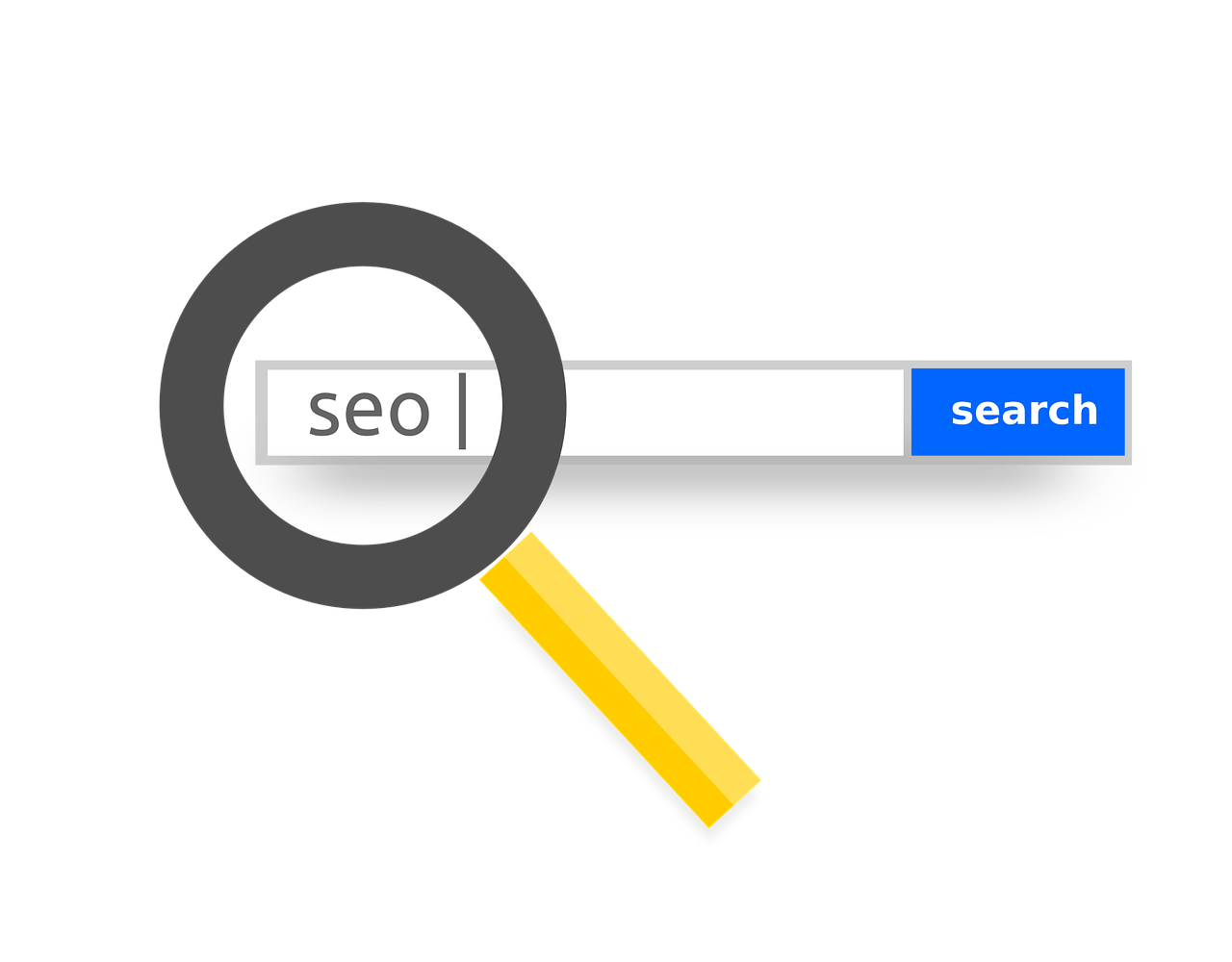 Few of us (author excluded) have had the particular circumstances to be able to know the history of SEO and search to such an extent that they can know what everyone is doing wrong, often without even asking or looking. Some myths just survive despite all odds, because they’re based in certain myths that human beings simply want to cling to. Others are old-standing issues that are too technical and not sexy enough to become common hereditary knowledge within an marketing department or organization. And some very precious few are new issues that derive from actual evolving search technologies (but far too few are of this type!).
Few of us (author excluded) have had the particular circumstances to be able to know the history of SEO and search to such an extent that they can know what everyone is doing wrong, often without even asking or looking. Some myths just survive despite all odds, because they’re based in certain myths that human beings simply want to cling to. Others are old-standing issues that are too technical and not sexy enough to become common hereditary knowledge within an marketing department or organization. And some very precious few are new issues that derive from actual evolving search technologies (but far too few are of this type!).
Below is a list of the ten SEO lies that almost everyone but the veteran SEO elite believe:
1. SEO is “cheap”.
Sounds wonderful, like cloudland unicorns made of candy-coated chocolate running through licorice fields of grain under a white chocolate full moon. I mean…cheap online marketing! Wow! Because everyone knows that PPC isn’t, therefore SEO…is? Wait…what?! It’s a dream!?! The hands you feel around your ankles pulling you down mean you no harm. I’m here to help you kick the habit of SEO lies. Let’s take a deep breath and try to get reacquainted with reality…ready?
If SEO were cheap, then would it be so hard to compete with the Fortune 500 for their own category keywords? Think about it. It’s not even logical. Not only do the biggest companies have millions of pages (often dynamically-generated database-created), but they advertise on PPC for those root terms and their longtail counterparts. They have popular, prospect-shared and tagged prospect-facing content that helps them to attain such a level of “cheap” SEO, and yet they still have experts (and I don’t mean 1-5 year “experts”) working to fine-tune their pages round the clock, a swarm of social media people making the content popular, and of course writers writing up a storm, with graphics people turning it all into eye-candy. Yes, tell me more about how good SEO is “cheap”…
2. SEO is “easy”.
Yes, so easy that all of the above activities somehow disappear whenever this lie is propounded. Look again. Are any of the activities about really “easy”? And that doesn’t even begin to cover technical SEO. For example…is your domain acting as two separate domains, draining off your link juice between the two no matter how fancy you thought you were getting with your “link-building” exercises? This basic little diddy is the one that almost half of all new or migrated websites currently suffer from. 🙁 And all because SEO is so “easy”. Which brings us to the related # 3 lie in the countdown…
3. “Link-building” can boost SEO.
If this one were true, then anybody could just start building links and they could take down the leaders of industry in SERPs. But not only did the original link-building dynamics never work permanently, all of what still passes as “link-building” is most definitely going to penalize your web pages in Google if you don’t cut it out and start replacing that word-out futile activity with something that generates REAL linkjuice, which brings us to…
4. Sharable content is not important.
Sharable content is actually the only thing that will bring you linkjuice on today’s internet. Sorry, Charlie, but that’s reality. If you want inbound links to happen, you can’t make them happen, you have to entice them to happen. That means planning sharable content for your industry or category. What makes people want to read content in your category? This is a question deserving of about an hour or more every day of any so-called SEO program in your marketing department. Anyone who says otherwise doesn’t understand how Google values fresh, popular, shared content, and they obviously still don’t get how foolish the next lie really is…
5. AdWords don’t impact SEO.
Still believed even among many who call themselves “SEO experts”. Would you believe it? Even common sense tells you that a company wants their customers to be satisfied with their SERPs presence. That said, understanding how PPC campaigns impact SEO on the world’s most powerful search engine is too abstract and too experiment-reliant for many minds without the history or time and resources to check it out first-hand. I’ll break it down here:
a) There is a thing called AdSense, b) AdSense is a content-flanking, text-heavy advertising platform owned by Google, c) AdSense results get indexed (do experiments before you poo-poo it, because the poo-pooers simply haven’t tried it for themselves–this strategy is decades old…). I’m going to let them one sink in, but at least let me add here that your SEO campaigns for your website X will do better if you simply do a AdWords campaign for the same words, at whatever level that is affordable for you. Of course, PPC deserves serious consideration and Google’s platform has world-wide saturation. Google is not King of search for nothing…they generally do it better. Props where they’re due.
6. Blogs are hard to run.
Really? A post a week of random category-related stuff that your prospect would care about is “hard”? Coming up with content ideas is not what’s hard about having a blog, it’s usually understanding who the blog should be really aiming at. For instance, if you own a website about sportswear, but you think that your customers read a lot of blogs that double as advertisements, guess again! Most jocks are reading boring blogs about a product? Really? A smarter approach would be to address the female fans of those fans: moms, wives, girlfriends. Who better to address? And what better topics than tailgating, prepping for the big game day, how to arrange a superbowl party, etc.? The point is not to push for a hard sell. The point is to add value to the lives of those who influence or MAKE those purchases in most cases. Men grunt and pull out the wallet. Women know what to buy and why. Cozy up to the reader closest to the sheller of the bucks, not the wallet itself. Strategy is the key to any good blog.
7. You can do your own SEO.
SEO wasn’t a fun ride for me. Looking back, if I had it to do over, I’d have probably skipped it. But I didn’t. Circumstances drew me into the most difficult, least appreciated, most changing area of digital marketing there is. Harder then managing PPC, for sure. Don’t kid yourself there. Not for nothing has it been called an “outlaw industry” since PPC makes search engines money, while SEO historically hasn’t–that is until more recently due to AdSense and other advertising platforms that have arisen around the content.
Yes I started a new paragraph for this one, here’s why: SEO is WAY more technical than you think it is. It is shifting from underneath your feet almost literally every week. Not only can you not probably afford the time and energy to truly “master SEO”, but neither can that kid you paid $200 to throw up a ton of spammy articles with a link to your site under the same handful of keyword phrases. And by the way…please stop doing that if you care about your search visibility whatsoever.
8. SEO companies should be young.
This is why all the SEO experts are young. Wait. Scratch that. Reverse it. Put your ear horn on, and get ready dear Whos in Whoville: it takes time to master SEO. Lots, and lots of time. Years are not really enough. It takes more like a decade or more to really begin to understand Google alone. And Google is the only one that matters for most countries (though not all). So unless your country is mainland China or South Korea (the only real markets where Google doesn’t currently rule search), Google is going to take up most of your time and it’s a big, big subject, requiring a sense of history to understand what is passing fad and what is the future. That gal you hired to write articles and get “creative” with HTML tags isn’t adding value to your SEO long term. If you find an SEO expert or company that has been doing SEO for over a decade (or even longer), you should probably first ask what they know of the latest changes in SEO, and then once they have wowed you with their verifiable wisdom to these quandaries, you should probably hire them. If you really want to make use of the new SEO “experts” out there, maybe you should introduce them to your competitors.
9. SEO can be done last.
Sorry, I’ll begin talking about this one when my belly stops heaving from all the laughter…
Yes, you *could* do your SEO last…just like you build build a house *without* a foundation…but why would any sane person actually do that? You’ll be starting over if you go down this route, and I mean probably for the entire website, from scratch! SEO needs to factor into your website from the very beginning of the first planning stage, even before picking a domain name. “Really?” you say. “Yup” says I. SEO is square 1 of your new website, unless you are Coca-Cola or Facebook, etc, and you can afford to pay millions to fix all errors as you trudge onward. Most companies can’t afford that, however.
10. SEO is dying.
This is a great slogan for social media companies who don’t care about truth, but it’s a stupid thing to tell yourself as a business owner or a marketer. Search won’t ever die. Here’s why:
- When you search by voice, do you think that your words aren’t translated into text and that that text isn’t processed through a search engine? Ha!
- All forms of semantic search require the basic foundation of traditional search.
- All algorithms that process popularity by keyword are still using keywords and thus are built on top of traditional search!
- Your household robot will be using Google to process your searches for information, to learn how to make the perfect cup of Thai cha, and most other things it will need to learn to do.
- Your Jetson Spaceship will need Google search to interpret the city airspace to guide you to the right spot on Google Maps.
- The family robodog will learn to pee in precisely the right place and time based on behavioral probes that use search to locate your automated home’s map in their database.
- Okay some of these may seem far-fetched and in jest, but now you can see what I’m driving at: all new internet technologies are built *on top of* search, it’s always been that way, and that’s the way it will always *probably* be.

